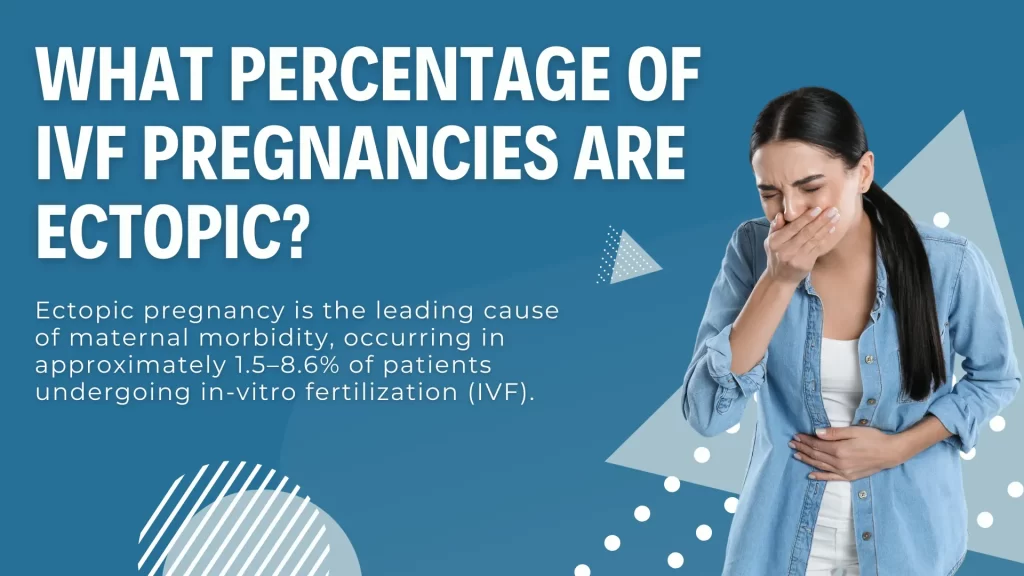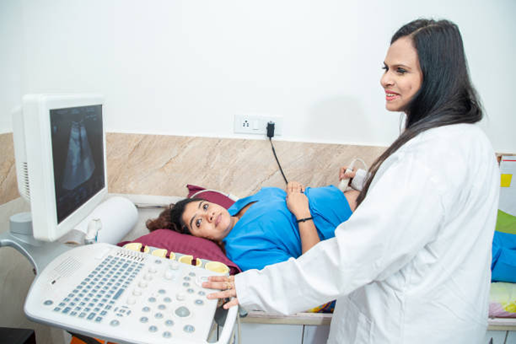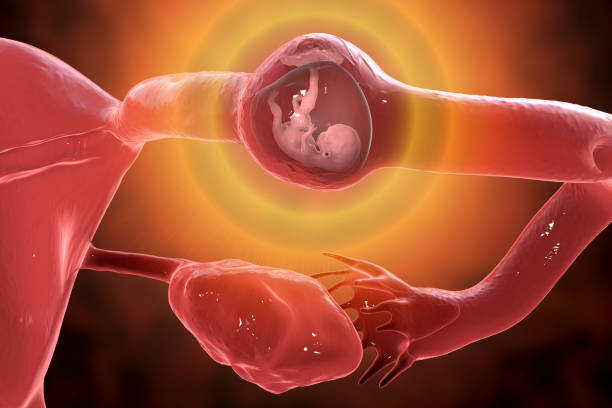IVF has transformed the lives of many couples struggling with infertility. It opened the door to parenthood that was before believed to be near impossible. Although, just like any other medical procedure, IVF comes with its risks and complications, one of which is ectopic pregnancy in IVF.
An ectopic pregnancy occurs when a fertilized egg implants and grows outside the main cavity of the uterus, most commonly in a fallopian tube, which is why it’s sometimes called a tubal pregnancy.
This condition is a medical emergency, as the growing tissue can cause the tube to burst, leading to severe complications. It can even damage the surrounding organs giving rise to the need for immediate medical intervention from a competent doctor.
Dr. Hrishikesh Pai, a prominent IVF doctor in India with over 4 decades of experience has provided valuable insights regarding ectopic pregnancy in this blog. He has handled thousands of cases in the field of gynecology and infertility. Over the years Dr. Pai has earned a reputation for providing effective and quality treatments for couples struggling to conceive.
Concerned about ectopic pregnancy during IVF? Discuss risks and prevention strategies with a fertility expert by booking an appointment.
Moving on, let’s continue by discussing the chance of ectopic pregnancy in IVF.
Chances of ectopic pregnancy in IVF?

Are you wondering about the question “Is ectopic pregnancy possible with IVF?” The answer is yes, Possibilities of ectopic pregnancy in natural conception are about 1-2%. IVF treatments, which are intended to overcome fertility hurdles, slightly change this ratio due to the various reasons inherent in the treatment process. A study affirms that ectopic pregnancy happens in 1.5–2.1% of IVF cycles which is not so common but still a serious problem.
Factors that influence the possibility of ectopic pregnancy during IVF:
- People with a history of tubal surgeries or infections may have a higher risk.
- With age, there comes an increased chance of it.
- The position of the embryo during transfer influences the incident rate.
- Previous ectopic pregnancy history in IVF treatment can also increase the chance of developing it again.
Early detection can help mitigate the problem effectively, read below to know about ectopic IVF pregnancy symptoms.
Signs of ectopic pregnancy after IVF?

Dr. Hrishikesh Pai, a leading doctor for IVF treatment in India explains, “Recognizing the early symptoms can facilitate early intervention, minimize health risks, and preserve fertility”.
Ectopic IVF pregnancy symptoms can be subtle at first but become more pronounced as the condition progresses. Individuals undergoing IVF should be vigilant about the following symptoms:
- Abnormal vaginal bleeding, which is lighter or heavier than a normal period. It is often accompanied by brownish or mucus discharge.
- Severe, stabbing pain on one side of the abdomen or pelvis. It may worsen during intense physical activity.
- Shoulder tip pain is also an abnormal symptom. It’s due to blood leaking into the abdomen. This blood immobilizes the diaphragm and causes pain at the shoulder tips.
- Gastrointestinal symptoms such as nausea or vomiting that is different from normal pregnancy-related symptoms.
- Dizziness or faintingcaused by internal bleeding may signal that ectopic pregnancy is advancing and becoming more serious.
If you are feeling unsure about any symptoms you are experiencing, act now to protect your health. Reach out for an immediate consultation.
So you might be thinking “What can I do to avoid such a condition in the first place?”. Keep reading to learn about the steps you can follow.
How to avoid ectopic pregnancy in IVF?

The initiative to take preventive steps has to come from the patient and the doctor both. Thus, making it imperative to have open communication and discuss all aspects of the treatment thoroughly.
Pre-IVF Screening and Evaluation:
- Doctors evaluate the pelvic region, including the fallopian tubes and uterus before the treatment. They do this to find out if the condition may raise the chance of ectopic with IVF.
- For those with a history of tubal issues, an evaluation can assess the risk and necessity of potential surgical intervention before IVF.
Optimizing Embryo Transfer Technique
- By using ultrasound during embryo transfer, the placements become more accurate and reduce the possibility of ectopic pregnancy.
- Embryo transfer timing is key. Transplanting an embryo only when the endometrial lining is in suitable condition would be the ultimate way to increase the chances of successful implantation.
Monitoring Initially and Regularly Upon Transition Post-Transfer
- Routine tracking of human chorionic gonadotropin (HCG) levels post-embryo transfer indicates how the pregnancy evolves.
- An early ultrasound test can confirm the location of the embryo. It should happen around the 6th or 7th week of pregnancy. This confirms if the embryo is developing within the uterus or outside the uterus.
Open Communication with Your IVF Team
- Don’t hesitate to ask your medical team about their protocols to minimize the risk of ectopic pregnancy and their experience in handling such cases.
- If you experience any symptoms of ectopic pregnancy, such as abdominal pain, vaginal bleeding, or shoulder pain, report these to your healthcare provider immediately.
Optimize your health before IVF. Get customized treatment plans for aspiring parents. Schedule an appointment today.
Keep reading to know whether it’s possible to save the embryo in case of ectopic pregnancy.
Can the embryo be saved in ectopic pregnancy?

Unfortunately, in the case of ectopic pregnancy, the embryo cannot be saved. This is because the embryo implants itself in a location where it cannot develop into a healthy fetus. Continuing the pregnancy poses significant risks to the woman, including severe bleeding and rupture of the fallopian tube, which can be life-threatening.
Conclusion
There is no sure way to avoid ectopic pregnancy in IVF. But, the above strategies will greatly decrease the risk and make IVF safer. Entrusting your fertility journey to an experienced IVF doctor in India, like Dr. Hrishikesh Pai ensures comprehensive guidance and involvement throughout the entire process.
With a dedicated focus on overcoming fertility challenges, Dr. Pai’s expertise aims to support you in successfully conceiving a baby through IVF treatment in India, and turning your dreams of parenthood into a reality.
Have some doubts? Refer to the FAQs below for more clarity.
FAQs
Does the Type of IVF Protocol Affect the Risk of Ectopic Pregnancy?
It does not matter which IVF protocol you use (eg., fresh vs. frozen embryo transfer) because it would not change the risk of ectopic pregnancy. The quality of embryo transfer and the medical background of recipients are considered the main factors that determine this risk.
Is There a Link Between the Number of Embryos Transferred and Ectopic Pregnancy Risk?
Transferring multiple embryos does not directly increase the risk of an ectopic pregnancy. However, it does raise the chances of a more complex pregnancy, which could include ectopic elements, especially in cases of heterotopic pregnancies (where one embryo implants in the uterus and other implants ectopically).
How soon can I start IVF after ectopic pregnancy?
Most doctors advise waiting at least 2-3 months after ectopic pregnancy treatment before IVF. This recovery period allows your body to heal physically and emotionally, ensuring you’re prepared for the IVF process. Discuss the ideal start time with your doctor for a personalized plan.
Why is ectopic a risk in IVF?
Ectopic pregnancy can occur in IVF due to factors like tubal issues, embryo transfer, and hormonal imbalances, increasing the risk of implantation outside the uterus. Close monitoring during IVF is essential to detect and manage potential complications, including ectopic pregnancy.
References:
( https://www.webmd.com/baby/pregnancy-ectopic-pregnancy )
( https://www.acog.org/womens-health/faqs/ectopic-pregnancy )

